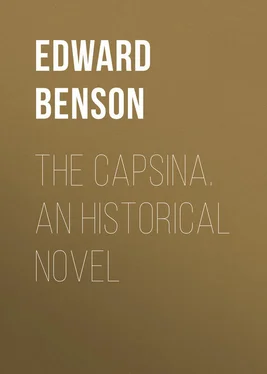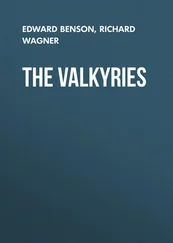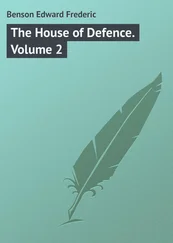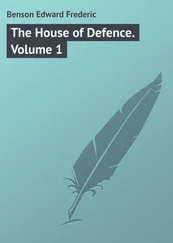Edward Benson - The Capsina. An Historical Novel
Здесь есть возможность читать онлайн «Edward Benson - The Capsina. An Historical Novel» — ознакомительный отрывок электронной книги совершенно бесплатно, а после прочтения отрывка купить полную версию. В некоторых случаях можно слушать аудио, скачать через торрент в формате fb2 и присутствует краткое содержание. Жанр: foreign_language, foreign_prose, на английском языке. Описание произведения, (предисловие) а так же отзывы посетителей доступны на портале библиотеки ЛибКат.
- Название:The Capsina. An Historical Novel
- Автор:
- Жанр:
- Год:неизвестен
- ISBN:нет данных
- Рейтинг книги:4 / 5. Голосов: 1
-
Избранное:Добавить в избранное
- Отзывы:
-
Ваша оценка:
- 80
- 1
- 2
- 3
- 4
- 5
The Capsina. An Historical Novel: краткое содержание, описание и аннотация
Предлагаем к чтению аннотацию, описание, краткое содержание или предисловие (зависит от того, что написал сам автор книги «The Capsina. An Historical Novel»). Если вы не нашли необходимую информацию о книге — напишите в комментариях, мы постараемся отыскать её.
The Capsina. An Historical Novel — читать онлайн ознакомительный отрывок
Ниже представлен текст книги, разбитый по страницам. Система сохранения места последней прочитанной страницы, позволяет с удобством читать онлайн бесплатно книгу «The Capsina. An Historical Novel», без необходимости каждый раз заново искать на чём Вы остановились. Поставьте закладку, и сможете в любой момент перейти на страницу, на которой закончили чтение.
Интервал:
Закладка:
She paused a moment, and went on with growing earnestness.
"Let us be sensible," she said, "and look things between the eyes, as a man looks before he strikes, and not pretend there are no obstacles in the path. We have decided, God be thanked, to be free. This freedom can only be bought dearly, at the cost of lives and money, and by the output of all our strength. We are not fighting to enrich ourselves. Only the short-sighted can fail to see this, and the short-sighted do not make good counsellors. Can any one tell me how we are to man ships for the next cruise, how get powder, how make repairs to our ships? On the mainland they are contributing one-half of all that is taken to the service of the war. Would it become us to ask for funds from them – for, indeed, they are sore pressed for money, and many of them serve without pay or reward. What has Nikolas Vidalis got for his ten years' work, journeying, scheming, risking his all every day? This, as he himself said, the right to serve his country! Is he not wise to count that more worth having than many piasters? Have you heard what happened to the second ship from Kalamata, which put into Nauplia on its way to Constantinople, to bring back men and arms? Two boys followed it out into the bay at Nauplia, ran their caique into the stern, set fire to it, and saved themselves in their small boat. One was a son of Petrobey, the other was Mitsos Codones, the nephew of Nikolas; him I have never seen, but there is a song about the boys' deed which the folk sing. There is their reward, and where should they look for a better? Are we mercenaries? Do we serve another country, not our own? Is the freedom of our country to be weighed against money? But this I would propose – that after our next cruise, should anything of what we give now be left over when the men are paid and the ships fit for use again, let that, if you will, be divided. Only let there never be a ship which cannot go to sea, or is ill-equipped for want of money, which might have been ready had not we taken it for ourselves. Now, if there is aught to say against this, let us hear it. For me, I vote for the war-fund to be made up of half the takings of each ship."
The Capsina's speech won the day, and even a few of the primates went over to her side, leaving, however, a more malignant minority. At the end of the meeting the money was collected, and the Capsina was fairly satisfied with her morning's work.
It was two days after this that word was brought to Hydra by a vessel of Chios, that Germanos, Archbishop of Patros, had need of Economos. The latter had friends and relations in Misolonghi, and as there was a strong garrison of Turks there, it seemed wiser to get the soundings of the place, so said the archbishop, from a man who would move about unsuspected. Therefore, if his work in Hydra was over, let him come. Late that afternoon he had gone to see the Capsina, in order to find out whether any of her vessels were by chance going to Nauplia or some mainland port, and could put him on his way.
"For my work here is finished, or so I think," he said. "Only this morning, indeed, I met Father Nikolas, who alone has been more detrimental to the cause than even the Turks; but he seemed most friendly to me, and regretted that I was going."
The Capsina was combing out Michael's ruff after his bath, and was not attending very closely. But at these words she left the comb in Michael's hair and looked up.
"What is that?" she said.
"I met Father Nikolas an hour ago," said Economos; "he thanked me for all I had done here, and said that he had hoped I was stopping longer. In fact, I think he has quite withdrawn all his opposition."
Now the Capsina had excellently sure reason for knowing that the primate still harbored the bitterest grudge against Economos for having first proposed and eventually carrying the institution of the war-fund, and her next question seemed at first strangely irrelevant.
"Do you walk armed?" she asked.
"Not in Hydra."
She drew the comb out of Michael's ruff, and clapped her hands. The servant came in at the summons.
"I want to see Kanaris," she said. "Send for him at once."
She stood silent a moment or two, until the servant had left the room, and then turned to Economos.
"I don't really know what to say to you," she remarked, "or how to account for my own feelings. But it is borne in upon me that you are in danger. Nikolas friendly and genial to you! It is not in the man. He is genial to none. That he should be genial to you of all men is impossible. Afterwards I will tell you why. Come, what did he say to you?"
"He asked me to sup with him this evening," said Economos, "and I told him that for aught I knew I might be gone before."
"He asked you to sup with him?" said the Capsina, frowning. "God send us understanding and charity! But really – " and she broke off, still frowning. Then after a pause:
"Look you," she said, "I do not know much of Father Nikolas, but this I know, that you can have no enemy more bitter. He took, so you tell me, a valuable prize in this last cruise. It is you, so he thinks, who has deprived him of half of it, and certainly it is you and I between us who have done so. Now the man has good things in him. I am trying, you understand, to put together these good things, his certain hatred of you, and his asking you to supper. Did you notice how he winced when at the meeting the other day I said: 'You are a Spetziot, but for that reason we would not turn you out of our assembly,' I think he knew what I meant, though my words can have meant nothing but what they seemed to say, except to him, Kanaris, and to me. It is this: He is a primate, but he is married, and fifteen years ago the Turks carried off his wife, who is a cousin of Kanaris, from Spetzas. Now I believe that the one aim of his life is to bring her back. She is in Athens, and he knows where. Man, you have taken half the ransom out of his closed pocket, I may say. Does he love you much? And if a Spetziot does not love he hates, and when he hates he kills. Why, then, did he ask you to supper?"
"You mean, he intended to kill me?"
"Yes, I mean that," said the Capsina.
"The treacherous villain – "
"No doubt, but think what you have done. Now, without unreasonable risk to you, I want to be certain about this, for Nikolas, I know, will give trouble. I am going to send you off to-night in the Sophia , to be landed at Kranidi. But I want you to leave this house alone, and walk down to the quay alone. There is not much danger; your way lies through the streets, and, at worst, if my guess about Nikolas is right, he will try to have you knifed. He dare not have you shot in the town, but a man's throat can be cut quietly. Man, what are you afraid of? Indeed, I wish I was you. But here is Kanaris. Kanaris, did you see or speak to any one on your way up here?"
"Yes, to Dimitri, the servant of Nikolas. He was coming out of a shop."
"What shop?"
"Vasto's shop."
"They sell knives in Vasto's shop," remarked the Capsina. "Well, what did he say to you?"
"He asked if Economos was with you. And I said that I thought so."
"That is, then, very pretty. Kanaris, you are to take Economos over to Kranidi to-night. He will leave this house in an hour exactly. You will wait for him in that dark corner by Christos's house, and keep your eyes open. Why? Because Dimitri will not be far off, and he will try to knife him. Dimitri, I am afraid, must be shot. Economos will do the shooting, but he must not shoot towards the dark corner of Christos's house, or there may be a Kanaris the less. Mind that, Economos. If he shoots not straight, Dimitri will probably run down towards the quay, where he will mix with the crowd. It shall then be Kanaris's business to stop him. Or he may run up here. It shall then be my business."
Читать дальшеИнтервал:
Закладка:
Похожие книги на «The Capsina. An Historical Novel»
Представляем Вашему вниманию похожие книги на «The Capsina. An Historical Novel» списком для выбора. Мы отобрали схожую по названию и смыслу литературу в надежде предоставить читателям больше вариантов отыскать новые, интересные, ещё непрочитанные произведения.
Обсуждение, отзывы о книге «The Capsina. An Historical Novel» и просто собственные мнения читателей. Оставьте ваши комментарии, напишите, что Вы думаете о произведении, его смысле или главных героях. Укажите что конкретно понравилось, а что нет, и почему Вы так считаете.











